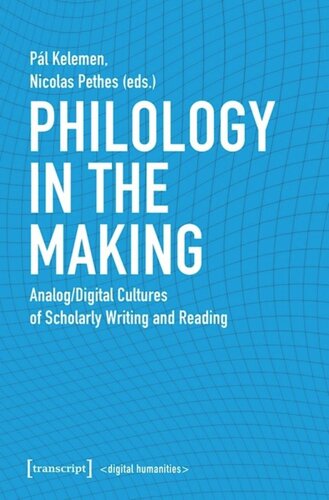

Most ebook files are in PDF format, so you can easily read them using various software such as Foxit Reader or directly on the Google Chrome browser.
Some ebook files are released by publishers in other formats such as .awz, .mobi, .epub, .fb2, etc. You may need to install specific software to read these formats on mobile/PC, such as Calibre.
Please read the tutorial at this link: https://ebookbell.com/faq
We offer FREE conversion to the popular formats you request; however, this may take some time. Therefore, right after payment, please email us, and we will try to provide the service as quickly as possible.
For some exceptional file formats or broken links (if any), please refrain from opening any disputes. Instead, email us first, and we will try to assist within a maximum of 6 hours.
EbookBell Team

4.0
36 reviewsPhilological practices have served to secure and transmit textual sources for centuries. However - this volume contends -, it is only in the light of the current radical media change labeled 'digital turn' that the material and technological prerequisites of the theory and practice of philology become fully visible. The seventeen studies by scholars from the universities of Budapest and Cologne assembled here investigate these recent transformations of our techniques of writing and reading by critically examining core approaches to the history and epistemology of the humanities. Thus, a broad praxeological overview of basic cultural techniques of collective memory is unfolded.